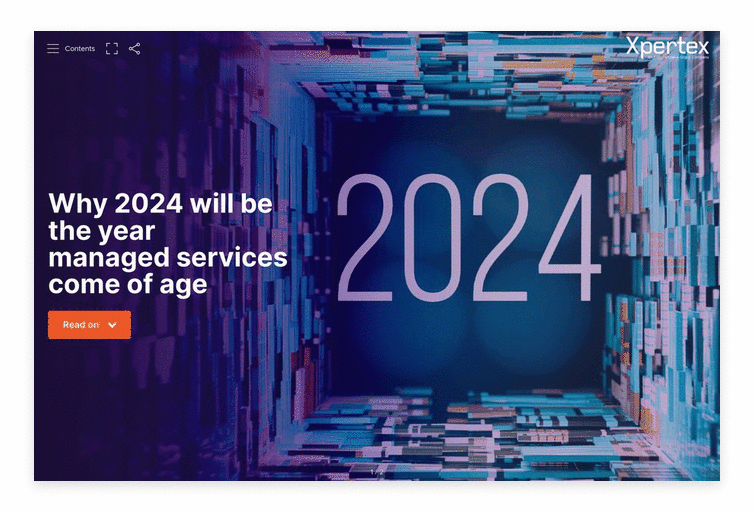As a result, it is the organisations who are ready to embrace this new level of flexibility who will not only weather especially challenging periods, but maintain their competitive edge, delivering exceptional service quality, attracting new customers, and driving new innovations.
With new financial and operational concerns emerging on an all-too-frequent basis, this may initially seem like wishful thinking on our part. Nonetheless, based on our ongoing work with our long-term customers and the conversations we’re having with forward-thinking organisations, we’re confident that it is not only achievable, but will soon become the new standard for how key IT services are delivered.
Agile innovation – why consider managed services?
The growing demand for fully integrated, highly secure IT services means that many organisations find themselves struggling to balance cost control and sustainable growth with the need to build on their internal capabilities. Identifying, recruiting, and retaining new talent is costly, time-consuming, and will frequently prove impractical when speed and agility are of the essence, e.g. when additional resources or expertise must be deployed in response to especially busy, challenging periods, or unexpected shifts in the landscape.
Managed services offer an alternative approach: one that emphasises the highest level of flexibility, complements rather than replaces internal capabilities, and allows new innovations to be brought to market at a faster pace. By allowing select functions – whether that’s routine tasks or ones that require specialist skills – to be managed by a trusted technology partner, internal teams are free to focus their attention and resources where they will be most effective.
Moving beyond the mundane and embracing a new breed of IT
Xpertex has long championed the importance of managed
services across the public and private sectors, applying the full range of
lessons from twenty years delivering services to the defence and intelligence
sectors to offer a distinctive, three-pillar approach:
With this as your foundation and Xpertex’ own specialists working tirelessly behind the scenes, the emphasis naturally shifts from mundane, repeatable tasks and the maintenance of legacy IT systems to driving innovation, embracing the very latest technical enhancements, and acting on opportunities for cost savings and process improvements as soon as they present themselves.
This is IT as it’s supposed to be: an enabler of agile business processes, an accelerator of short- and long-term business goals, and a driver of organic growth, even during the most challenging periods. If you’re curious to see how the right combination of managed and professional services could provide your organisation with the leading edge in the years ahead, don’t hesitate to contact us.
Why 2024 will be the year managed services come of age
Managed IT services are revealing their true potential, helping organisations not only survive, but thrive during especially challenging periods.
About the author
Jack Wilson, Service Delivery Manager, Xpertex
Jack has worked in IT for more than twelve years, developing an impressive record of successful projects across the IT security and intelligence spaces, including monitoring, app support, consultancy, asset management, and service management. All of this informs his current role as Service Delivery Manager at Xpertex, having joined us full-time after six years as an associate, where now draws on his broad experience for complex projects involving some of the highest-level security systems, ensuring the country’s IT remains safe and secure, 24/7.





